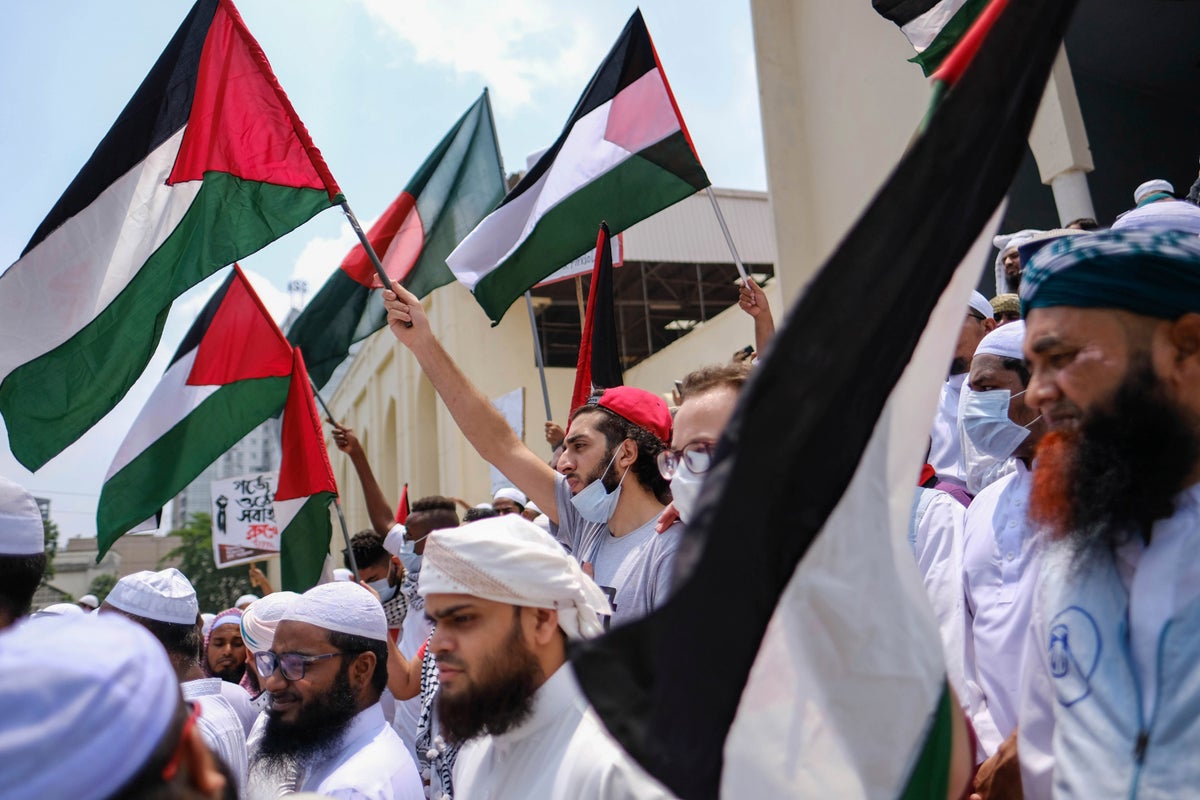Yes, Bangladesh supports Palestine and does not recognize Israel. Bangladesh has been a consistent supporter of Palestinian’s right to an independent state and offers scholarships to young Palestinians.
The two countries also cooperate on military affairs. Bangladesh’s advocacy for Palestine officially became part of its foreign policy when the country gained independence. This article will explore Bangladesh’s relationship with Palestine and the history of their solidarity. We will also discuss the recent Israel-Palestine conflict and Bangladesh’s stance on the issue.
Furthermore, we will look at how Bangladeshis are rallying to support Palestine and their moral obligation to stand with the Palestinian people.
Historical Context
Bangladesh has consistently supported Palestine’s right to an independent state and does not have diplomatic relations with Israel. The two countries collaborate on military affairs and Bangladesh offers scholarships to young Palestinians, highlighting a strong historical context of solidarity between them.
| Historical Context |
| Bangladesh has been a consistent supporter of Palestine’s right to an independent state. Bangladesh does not recognize Israel and has no diplomatic relations with them. The two countries co-operate on military affairs, and Bangladesh offers scholarships to young Palestinians. Bangladesh’s stance towards Palestine can be traced back to the country’s own struggle for independence. During Bangladesh’s war of independence in 1971, the Arab countries including Palestine, supported the Bengali people’s struggle for freedom. This support has created a bond of solidarity between Bangladesh and Palestine that continues to this day. |
| Key moments in Bangladesh-Palestine relations |
| In 1974, Bangladesh was one of the first countries to recognize the Palestine Liberation Organization (PLO) as the sole legitimate representative of the Palestinian people. In 1988, Bangladesh recognized the State of Palestine after it declared independence. In 2018, Bangladesh’s Prime Minister Sheikh Hasina reaffirmed Bangladesh’s unwavering support for Palestine during a meeting with Palestinian President Mahmoud Abbas. Bangladesh’s support for Palestine is not just political, but also cultural. Bangladeshis often take to the streets to protest against Israel’s actions towards Palestine, and the country’s media regularly reports on events in Palestine. |

Credit: www.arabnews.com
Diplomatic Ties And Non-recognition Policies
Bangladesh has maintained a firm stance on Israel, not recognizing the country diplomatically. On the other hand, the nation has formal relations with Palestine, consistently supporting their right to an independent state. Additionally, Bangladesh extends support to young Palestinians by offering scholarships and engages in military cooperation with Palestine. The country’s strong stance on the issue is evident through the presence of the Palestinian embassy in Bangladesh, further solidifying their support for Palestine.
Solidarity In Action
| Bangladesh has been a consistent supporter of the Palestinian people’s right to an independent state. The country does not have diplomatic relations with Israel and firmly stands in solidarity with Palestine. In addition to this political support, Bangladesh also offers scholarships to young Palestinians, demonstrating its commitment to the cause. Furthermore, there is active military cooperation between Bangladesh and Palestine, highlighting the depth of their relationship. This solidarity is further exemplified by public demonstrations in Bangladesh, where activists march through universities demanding an end to the Israel-Hamas conflict. The history of solidarity between Bangladesh and Palestine spans decades, with both countries supporting each other in times of displacement and struggle. |

Credit: www.independent.co.uk
Bangladesh’s Foreign Policy
| Bangladesh has consistently supported Palestine’s right to an independent state. The country has no diplomatic relations with Israel and actively advocates for Palestinian sovereignty. Bangladesh also offers scholarships to Palestinian students and collaborates with Palestine on military matters. This stance has had a positive impact on Bangladesh’s international relations, garnering support from other countries sympathetic to the Palestinian cause. |
The Role Of Public Sentiment
Bangladesh has been a consistent supporter of the Palestinians’ right to an independent state and has no diplomatic relations with Israel. The country offers scholarships to young Palestinians and cooperates on military affairs. Public opinion in Bangladesh strongly favors Palestine in the Israeli-Palestinian conflict. Activism in support of Palestine is evident through various marches and demonstrations in universities. The relationship between Bangladesh and Palestine is marked by a history of solidarity and support.
Challenges And Criticisms
Bangladesh has been a consistent supporter of the Palestinian right to an independent state and does not have diplomatic relations with Israel. The country offers scholarships to young Palestinians and cooperates with them on military affairs. Bangladesh’s position on Hamas, the controversial Palestinian political organization, is not explicitly mentioned in the available sources. However, it is known that Bangladesh supports Palestine and does not recognize Israel. There is also a Palestinian embassy in Bangladesh. The recent Israel-Palestine conflict has sparked debates and discussions worldwide, including in Bangladesh. Activists in Bangladesh have marched through universities to demand an end to the Israel-Hamas war. Bangladesh and Palestine have a history of solidarity, supporting each other in displacement and other challenges.
Comparative Perspectives
Bangladesh firmly supports Palestine’s right to an independent state, showing solidarity through various initiatives, including offering scholarships to Palestinian youth and collaborating on military affairs. This unwavering support is evident in Bangladesh’s stance of not recognizing Israel diplomatically.
| Bangladesh, along with Norway, Ireland, and Spain, formally recognizes Palestine as a state. This recognition has led to tensions with Israel and some EU states. Bangladesh firmly supports Palestine’s right to an independent state and maintains no diplomatic relations with Israel. Additionally, the country provides scholarships to Palestinian youth and cooperates with Palestine on military matters. |

Credit: www.reddit.com
Looking Forward
Bangladesh has consistently supported the Palestinians’ right to an independent state and does not have diplomatic relations with Israel. The country offers scholarships to young Palestinians and cooperates with them on military affairs. Bangladesh stands in solidarity with Palestine.
| Bangladesh’s Stance | Support for Palestine |
| Bangladesh firmly stands in support of Palestine’s quest for independence. | This support is evident through Bangladesh’s lack of diplomatic ties with Israel. |
| Public Opinion | Solidarity with Palestine |
| The Bangladeshi public also widely supports the Palestinian cause. | This solidarity is reflected in various demonstrations and events. |
Frequently Asked Questions
Which Country Supports Palestine?
Norway, Ireland, and Spain have formally recognized Palestine as a state. However, Israel opposes this.
Does Bangladesh Recognise Israel?
Bangladesh does not recognize Israel. Bangladesh supports Palestine and has no diplomatic relations with Israel.
Does India Support Israel Or Palestine?
India supports a negotiated two-state solution for Palestine and Israel, with the establishment of a sovereign and independent State of Palestine living in peace with Israel. India’s policy is consistent and aims for a peaceful resolution.
Conclusion
Bangladesh has consistently supported Palestine’s right to an independent state and has shown solidarity through various forms of cooperation. The country’s stance in not recognizing Israel and offering scholarships to young Palestinians demonstrates its unwavering support. This longstanding support reflects Bangladesh’s commitment to the Palestinian cause.


